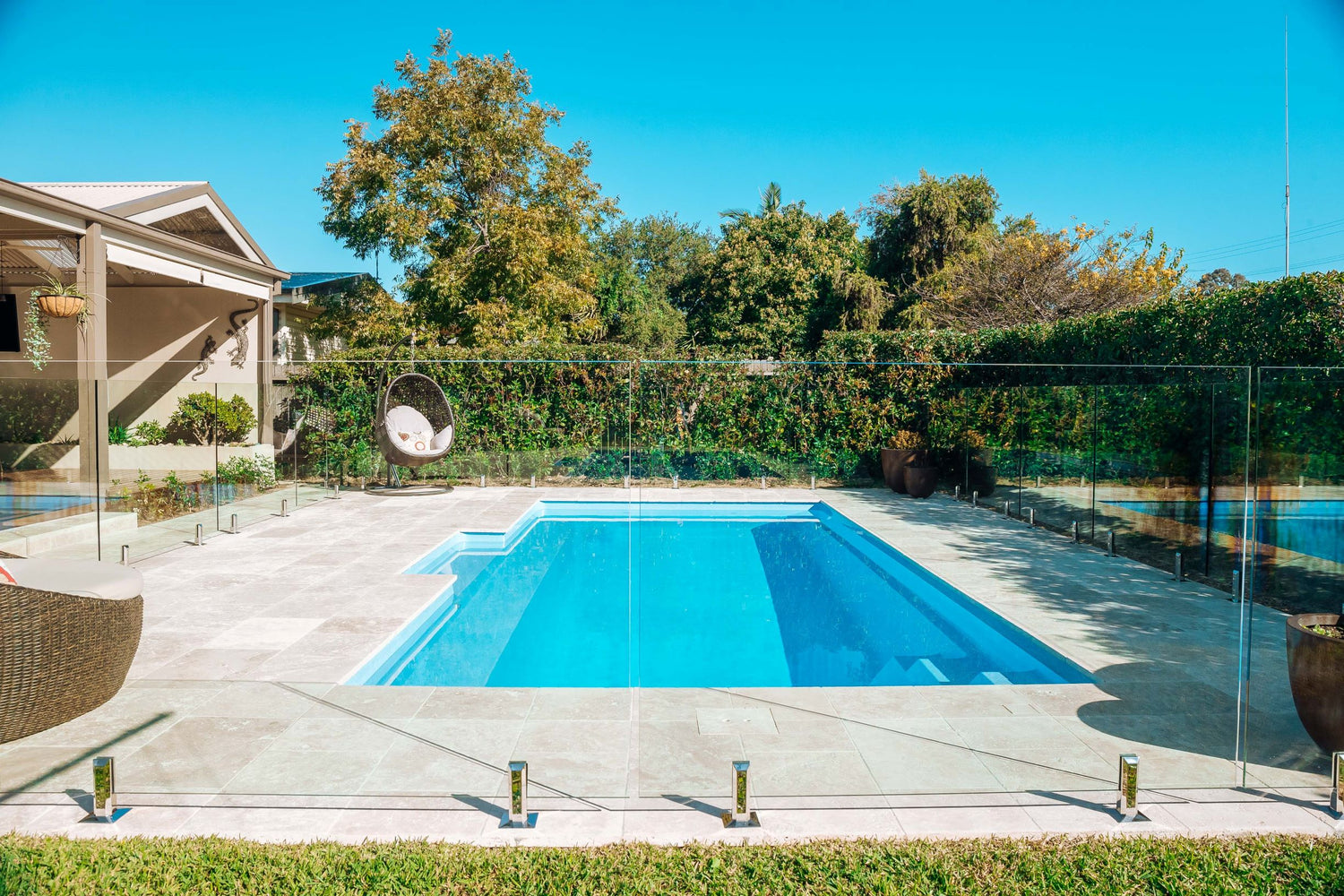How to Choose Between a Saltwater or Chlorine Pool
When deciding to build or upgrade your pool, one crucial choice you'll face is whether to go with a saltwater system or a traditional chlorine system. Both have their advantages and disadvantages, and the best option for you will depend on your specific needs and preferences. This blog post will help you understand the differences between saltwater and chlorine pools, so you can make an informed decision.
Understanding the Basics
Chlorine Pools
Chlorine pools use chlorine tablets, granules, or liquid to disinfect the water and kill harmful bacteria and algae. The chlorine is manually added to the pool water and requires regular testing and adjustment to maintain proper levels.
Saltwater Pools
Saltwater pools use a salt chlorine generator to convert salt into chlorine. This system produces chlorine through a process called electrolysis, which breaks down the salt (sodium chloride) into chlorine gas. The chlorine gas dissolves in the water, disinfecting it in the same way as traditional chlorine.
Pros and Cons of Chlorine Pools
Pros:
- Cost-Effective Initial Setup: Chlorine pools generally have a lower initial setup cost compared to saltwater pools.
- Familiarity: Most pool owners and maintenance companies are familiar with chlorine systems, making them easier to manage.
- Quick Adjustment: Chlorine levels can be quickly adjusted by adding more chlorine tablets or liquid.
Cons:
- Maintenance: Chlorine pools require regular monitoring and adjustment of chemical levels.
- Chemical Handling: Handling chlorine can be hazardous and requires careful storage and handling.
- Odor and Skin Irritation: Chlorine can cause a strong odor and may irritate the skin and eyes of some swimmers.
Pros and Cons of Saltwater Pools
Pros:
- Lower Maintenance: Saltwater pools generally require less frequent chemical adjustment since the salt chlorine generator maintains a consistent level of chlorine.
- Softer Water: The water in a saltwater pool is softer, which can be gentler on the skin and eyes.
- Fewer Chemicals: Saltwater pools require fewer chemicals, reducing the need to store and handle hazardous substances.
Cons:
- Higher Initial Cost: The initial setup cost for a saltwater pool is typically higher due to the expense of the salt chlorine generator.
- Corrosion: Saltwater can be corrosive to certain pool materials and equipment, requiring more careful selection of materials.
- Complex Repairs: If the salt chlorine generator or other equipment breaks down, repairs can be more complex and costly compared to a traditional chlorine system.
Factors to Consider When Choosing
1. Budget
Consider both the initial setup cost and ongoing maintenance expenses. While chlorine pools have a lower upfront cost, the cost of chemicals and maintenance can add up over time. Saltwater pools have a higher initial investment but may save money on chemicals and maintenance in the long run.
2. Maintenance Preference
Think about how much time and effort you’re willing to put into maintaining your pool. Chlorine pools require regular testing and manual addition of chemicals, while saltwater pools have a more automated system but still need periodic monitoring and maintenance.
3. Health and Comfort
If you or your family have sensitive skin or are prone to irritation from chlorine, a saltwater pool may be a better option due to its softer water and lower chlorine levels.
4. Pool Materials
Check the compatibility of your pool materials with saltwater. Some materials, such as certain types of metal and natural stone, can be more susceptible to corrosion from saltwater.
5. Local Climate and Usage
Consider how often you will use the pool and the climate in your area. In regions with high evaporation rates, salt levels may need to be monitored more closely in saltwater pools. Additionally, frequent use can impact the maintenance needs of both types of pools.
Conclusion
Choosing between a saltwater and chlorine pool comes down to your personal preferences, budget, and maintenance capabilities. Chlorine pools are cost-effective and familiar but require more hands-on maintenance. Saltwater pools offer a more automated and gentler swimming experience but come with a higher initial cost and potential material compatibility issues. By weighing the pros and cons and considering your specific needs, you can make the best decision for your pool and enjoy a refreshing swim all season long.

